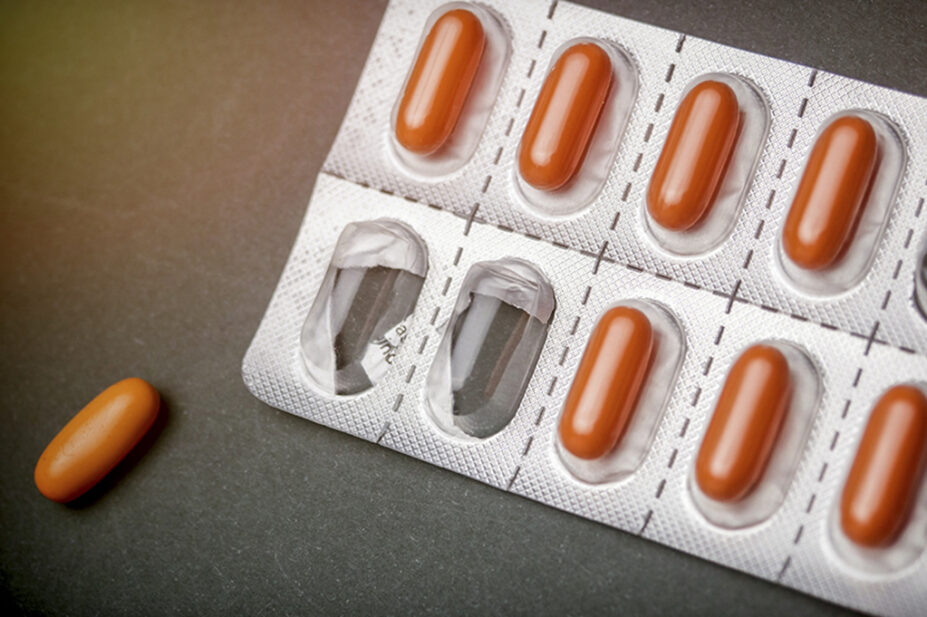
DIGICOMPHOTO / SCIENCE PHOTO LIBRARY
One in five generic medicine price concessions are imposed by the government, rather than agreed through negotiation with the Pharmaceutical Services Negotiating Committee (PSNC), data analysis by The Pharmaceutical Journal has revealed.
A record 1,334 price concessions were announced in the period October 2021 to October 2022, of which 285 (21%) were imposed by the Department of Health and Social Care (DHSC) without agreement, and 1,049 with agreement.
These data, obtained via a freedom of information (FOI) request, show that the number of impositions grew towards the end of the period as the number of concessions increased sharply, from 8 of 48 total concessions in October 2021 (17%) to 38 of 155 concessions in August 2022 (25%).
The problem of drug prices exceeding reimbursement prices on the Drug Tariff has caused much concern in recent months, with pharmacists left out of pocket. The price concessions system is intended to make sure pharmacists are properly reimbursed.
Price concessions are granted for generic medicines when pharmacists are unable to source them at the price listed in the Drug Tariff. If a price concession is in place, the pharmacy contractors will be reimbursed at the concessionary price rather than the Drug Tariff’s listed price.
Concession numbers remain high, with 198 price concessions agreed for December 2022 and 168 for January 2023; however, the PSNC has declined to say how many of these were imposed and how many agreed.
Janet Morrison, chief executive of the PSNC, said that the urgent review of the price concessions system that it pushed for September 2022 was “now well underway”.
“Our meetings with DHSC have been constructive, we are still pressing hard as there has not yet been an outcome that we are satisfied with.
“Community pharmacies cannot continue to fund the gap between reimbursement and purchasing prices for selected medicines — this needs both urgent short-term solutions and more fundamental long-term reform. We will provide contractors with further updates as soon as we are able,” she added.
“Our team works hard to push for a price that we feel is appropriate for contractors but, ultimately, DHSC can decide to impose a price based on data they have gathered.”
Nick Hunter, chief officer for the Doncaster, Rotherham and Nottinghamshire Local Pharmaceutical Committees, said most pharmacists would be unaware of how many concessions were imposed, meaning a lot of anger was directed at PSNC.
“[Contractors] are very frustrated about the situation. I don’t think there’s a lot of understanding about the mechanism. I get a lot of quite angry concerns raised and a lot of pharmacy owners blame PSNC for not doing a good job, but as you have identified, one in five [concessions] are imposed and there’s nothing that can be done about that.
“People say it’s unfair, and it is unfair, but the government don’t care and don’t seem to value the operational process of dispensing,” he said.
“Everybody seems to agree the concessions system is broken and we desperately need an alternative. It doesn’t work for anyone.”
Hunter added that the system would not be fixed properly until the supply issues of NHS drugs was sorted out. “If you look back five years, concessions were in single figures. If they were more than half a dozen we were all up in arms. Now, if it’s less than 100, you’ve done well.”
A statement from Leyla Hannbeck, chief executive of the Association of Independent Multiple Pharmacies, said: “It’s unacceptable that the government and commissioners are refusing to reimburse pharmacy contractors their cost of acquisition of medicines at these times of operational and financial strain. To expect pharmacies to dispense items in a timely manner at a cost to their own pocket is something that we believe the majority of patients would find hard to believe is happening and none would support.
“In addition to imposition, there are also a number of lines which are not reimbursed sufficiently well and there is also the continuing anomaly that discount is assumed to be received on these lines, when clearly it is not and so this is deducted in addition.”
The FOI request was initially refused when the DHSC claimed the information was exempt on the basis of “prejudice to commercial interests”; however, The Pharmaceutical Journal requested a review of the decision in January 2023, at which point the DHSC agreed to release the information (see Table below).
The DHSC did not respond in time for publication.


